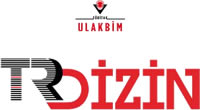Koronavirüs Pandemisi Sürecinde Online Eğitime Yönelik Eğitim Fakültesinde Görev Yapmakta Olan Öğretim Elemanlarının Görüşlerinin Belirlenmesi
DOI:
https://doi.org/10.15659/ankad.v6i2.171Anahtar Kelimeler:
Pandemi- Koronavirüs pandemisi- çevrim içi eğitim- öğretim elemanıÖzet
Bu çalışma dünya genelinde hızla yayılan, can kayıplarına sebep olan koronavirüs pandemisi sürecinde uygulanan çevrim içi eğitimle ilgili öğretim elemanlarının görüşlerini incelemek amacıyla yapılmıştır. Çalışmada nitel araştırma yöntemlerinden olgubilim (fenomenoloji) deseni kullanılmıştır. Çalışma grubunun oluşturulmasında uygun örnekleme yöntemi tercih edilmiştir. Bu doğrultuda İç Anadolu Bölgesi’nde yer alan iki devlet üniversitesinden 40 öğretim elemanının görüşlerine başvurulmuştur. Araştırma verileri araştırmacı tarafından geliştirilen yarı yapılandırılmış görüşme formu ile toplanmıştır. Elde edilen veriler içerik analizi ile değerlendirilip yorumlanmıştır. Araştırmanın sonucunda öğretim elemanlarının çevrim içi derslerini dizüstü bilgisayar kullanarak, Zoom ve Big Blue Button platformları aracılığıyla yürüttükleri ortaya çıkmıştır. Çevrim içi eğitimin zaman ve mekân açısından esnek olması, pandemi sürecinde eğitim faaliyetlerinde süreklilik sağlaması gibi avantajlarının yanında internet kesintisi, alt yapı yetersizliği, iletişimsel sorunlar gibi dezavantajlarının olduğu belirlenmiştir. Yine çevrim içi eğitim sürecinin öğretim elemanlarının teknolojiyi kullanma becerisini artırdığı ancak derslerde çok yönlü etkileşim olmadığı için derslerin verimli bir şekilde yürütülemediği sonucuna ulaşılmıştır. Öğretmenlerin ölçme değerlendirme sürecinde en çok performans, proje, ev ödevleri gibi süreç temelli tekniklerden yararlandığı saptanmıştır. Bu bulgulardan hareketle daha çok etkileşimde bulunulabilecek uygulamaların geliştirilmesi ve alt yapının güçlendirilmesiyle çevrim içi eğitim ile yüz yüze eğitimin harmanlanarak kullanılması sağlanabilir.
Referanslar
Akbaba, B., Kaymakcı, S., Birbudak, T. & Kılcan, B. (2016). University students’ perceptions about teaching Atatürk’s principles and Turkish revolution history with distance education. Journal of Theoretical Educational Science, 9(2), 285-309.
Aktaş, Ö., Büyüktaş, B,, Gülle, M. & Yıldız, M. (2020). Covid-19 virüsünden kaynaklanan izolasyon günlerinde spor bilimleri öğrencilerinin uzaktan eğitime karşı tutumları. Sivas Cumhuriyet Üniversitesi Spor Bilimleri Dergisi, 1(1), 1-9.
Akyürek, M. İ. (2020). Uzaktan eğitim: Bir alanyazın taraması. Medeniyet Eğitim Araştırmaları Dergisi, 4(1), 1-9.
Altıntaş Yüksel, E. (2021). Sınıf öğretmenlerinin covid-19 salgını sürecinde çevrim içi ders- uzaktan eğitim deneyimlerinin incelenmesi. Ulakbilge Sosyal Bilimler Dergisi, 57, 291–303. doi: 10.7816/ulakbilge-09-57-11
Altun Ekiz, M. (2020). Koronavirüs karantinasında günlük tutan üniversite öğrencileri üzerine nitel bir araştırma. Gazi Beden Eğitimi ve Spor Bilimleri Dergisi, 25(4) , 387-401.
Bakioğlu, B. & Çevik, M. (2020). Covid-19 pandemisi sürecinde fen bilimleri öğretmenlerinin uzaktan eğitime ilişkin görüşleri. Turkish Studies Dergisi, 15(4), 109-129
Balaman, F. & Hanbay Tiryaki, S. (2021). Corona virüs (covid-19) nedeniyle mecburi yürütülen uzaktan eğitim hakkında öğretmen görüşleri. İnsan ve Toplum Bilimleri Araştırmaları Dergisi, 10(1) , 52-84. DOI: 10.15869/itobiad.769798
Bilgiç, H., Doğan., D. & Seferoğlu, S. (2011). Türkiye'de yükseköğretimde çevrimiçi öğretimin durumu: ihtiyaçlar, sorunlar ve çözüm önerileri. Yükseköğretim Dergisi, 1(2), 80-87.
Bozkurt, A. (2017). Türkiye’de uzaktan eğitim: dünü, bugünü ve yarını. Açık Öğretim Uygulamaları ve Araştırmaları Dergisi, 3(2), 85-124.
Büyüköztürk, Ş., Kılıç Çakmak, E., Akgün, Ö. E., Karadeniz, Ş. & Demirel, F. (2018). Bilimsel araştırma yöntemleri. Ankara: Pegem Akademi.
Can, E. (2020). Coronavirüs (Covid-19) pandemisi ve pedagojik yansımaları: Türkiye’de açık ve uzaktan eğitim uygulamaları. Açıköğretim Uygulamaları ve Araştırmaları Dergisi. 6(2), 11-53.
Demir, E. (2014). Uzaktan eğitime genel bir bakış. Dumlupınar Üniversitesi Sosyal Bilimler Dergisi, 39, 203-211.
Dolmacı, M. & Dolmacı, A. (2020). Eş zamanlı uzaktan eğitimle yabancı dil öğretiminde öğretim elemanlarının görüşleri: Bir covid 19 örneği. Türk Eğitim Bilimleri Dergisi, 18(2) , 706-732.
Fidan, M. (2020). Covid-19 belirsizliğinde eğitim: İlkokulda zorunlu uzaktan eğitime ilişkin
öğretmen görüşleri. Uşak Üniversitesi Eğitim Araştırmaları Dergisi, 6(2), 24-43.
Kocayiğit, A. & Uşun, S. (2020). Milli Eğitim Bakanlığına bağlı okullarda görev yapan öğretmenlerin uzaktan eğitime yönelik tutumları (Burdur ili örneği). Avrasya Uluslararası Araştırmalar Dergisi, 8(23) , 285-299.
Koç, E. (2020). An evaluation of distance learning in higher education through the eyes of course instructors. Akdeniz Üniversitesi Eğitim Fakültesi Dergisi, 3(1), 25-39.
Kurnaz, E., & Serçemeli, M. (2020). Covid-19 Pandemi döneminde akademisyenlerin uzaktan eğitim ve uzaktan muhasebe eğitimine yönelik bakış açıları üzerine bir araştırma. Uluslararası Sosyal Bilimler Akademi Dergisi, 2(3), 262-288.
Metin, A., Karaman, A. & Şaştım, Y. (2017). Öğrencilerin uzaktan eğitim sistemine bakış açısı ve uzaktan eğitim İngilizce dersinin verimliliğinin değerlendirilmesi: Banaz meslek yüksekokulu. Karabük Üniversitesi Sosyal Bilimler Enstitüsü Dergisi, 7(2), 640-652
Moore, M.G. & Kearsley, G. (2012). Distance education: A systems view of online learning. Belmont, CA: Wadsworth Cengage Learning.
Özdoğan, A.Ç. & Berkant, H.G. (2020). Covid-19 pandemi dönemindeki uzaktan eğitime ilişkin paydaş görüşlerinin incelenmesi. Milli Eğitim Dergisi, 49(1), 13-43.
Özgül, E., Ceran, D. & Yıldız, D. (2020). Uzaktan eğitimle yapılan Türkçe dersinin öğretmen görüşlerine göre değerlendirilmesi. Milli Eğitim Dergisi, 49(1), 395-412.
Sayan, H. (2020). Covid-19 pandemisi sürecinde öğretim elemanlarının uzaktan eğitime ilişkin görüşlerinin değerlendirilmesi. Bilişim Teknolojileri Çevrim içi Dergisi. 11(42), 100- 122.
Sen, Ö. & Kızılcalıoğlu, G. (2020). Covid-19 pandemi sürecinde üniversite öğrencilerinin ve akademisyenlerin uzaktan öğretime yönelik görüşlerinin belirlenmesi. Uluslararası 3b Yazıcı Teknolojileri ve Dijital Endüstri Dergisi, 4(3). 239-252.
Şeren, N., Tut, E. & Kesten, A. (2020). Korona virüs sürecinde uzaktan eğitim: Temel eğitim bölümü öğretim elemanlarının görüşleri. Turkish Studies Dergisi, 15(6), 4507- 4524
UNESCO, (2020). Covid-19 educational disruption and response, https://en.unesco.org/covid19/educationresponse, adresinden 06 Nisan 2021 tarihinde erişilmiştir.
URL, 1. https://www.bbc.com/turkce/haberler-dunya-51614548 adresinden 04.04.2021 tarihinde erişilmiştir.
URL, 2. https://www.sozcu.com.tr/2020/gundem/son-dakika-okullar-tatil-edildi-mi-bestepede- corona-virusu-zirvesi-sonrasi-flas-aciklamalar- 5676357/adresinden19.05.2021.tarihinde erişilmiştir.
URL, 3. https://www.hurriyet.com.tr/egitim/basliksiz-41787676Anaokulu ve sınav gruplarına okul açık adresinden 15.04.2021 tarihinde erişilmiştir.
Yeşil, Y. (2015). KOBİ’lerde eğitim ve geliştirmenin örgütsel bağlılıkla ilişkisi: Çerkezköy Organize Sanayi Bölgesi’nde bir araştırma (Yayınlanmamış Doktora Tezi), Sakarya Üniversitesi, Sakarya.
Yıldırım, A. & Şimşek, H. (2013). Sosyal bilimlerde nitel araştırma yöntemleri. Ankara: Seçkin Yayıncılık.
Yayınlanmış
Nasıl Atıf Yapılır
Sayı
Bölüm
Lisans
Telif Hakkı (c) 2024 Anadolu Kültürel Araştırmalar Dergisi (ANKAD)

Bu çalışma Creative Commons Attribution-NonCommercial 4.0 International License ile lisanslanmıştır.













